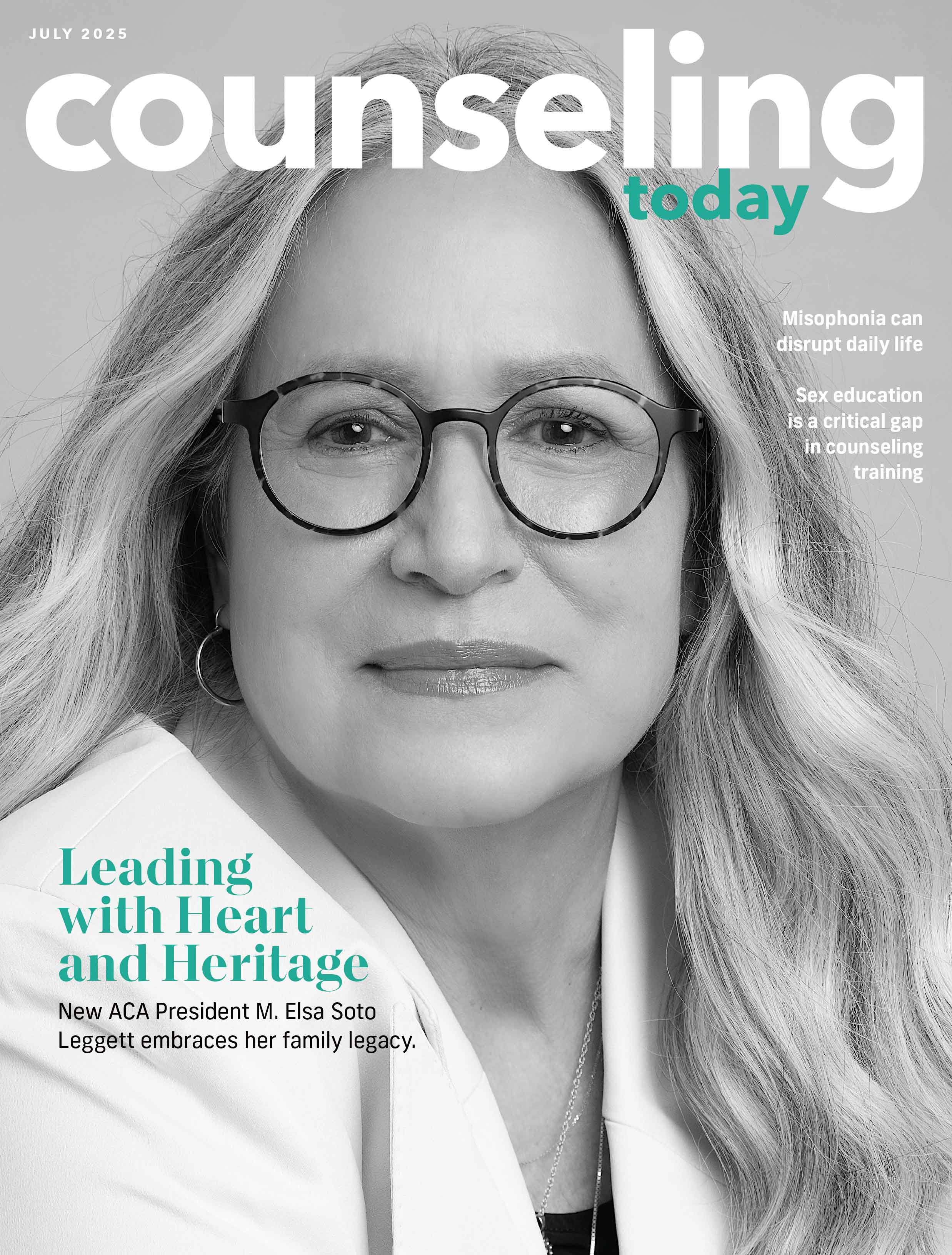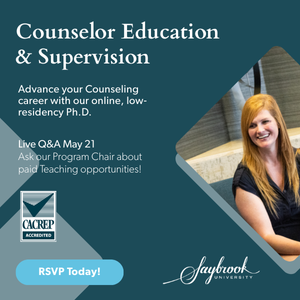Explore Counseling Today Articles
-
 An integral model for using empathy in counselingDecember 2023
An integral model for using empathy in counselingDecember 2023Counselors understand the importance of empathy, but they sometimes find it challenging to fully integrate into practice.
-
 Addressing problematic internet use with youth and familiesNovember 2023
Addressing problematic internet use with youth and familiesNovember 2023In an ever-increasing digital world, counselors can help families develop healthy guidelines on internet use that consider each child’s developmental needs.
-
 Helping clients navigate religious traumaNovember 2023
Helping clients navigate religious traumaNovember 2023Religious and spiritual experiences are not always positive; sometimes, they cause emotional harm that affects a client’s identity, belief and sense of safety.
-
 What I’ve learned as a new professional counselorOctober 2023
What I’ve learned as a new professional counselorOctober 2023Starting a new career in counseling later in life taught one new counseling professional a few important lessons.
-
 The benefits of clinical consultation groupsOctober 2023
The benefits of clinical consultation groupsOctober 2023Two clinical supervisors share their advice on how to create successful consultation groups, which reduce isolation, provide clinical support, foster professional growth and improve client outcomes.
-
 Essential skill development for meaningful social connectionSeptember 2023
Essential skill development for meaningful social connectionSeptember 2023By working on basic developmental social skills, clients with insecure attachment and trauma histories can learn to build healthy, meaningful relationships.
-
 Coping with the loss of a supervisee to suicideSeptember 2023
Coping with the loss of a supervisee to suicideSeptember 2023One counselor shares his painful story of losing a supervisee to suicide and offers advice on how to cope after traumatic loss.
-
 Cultivating patience in counselorsAugust 2023
Cultivating patience in counselorsAugust 2023A desire for change can sometimes cause counselors and clients to overlook the importance of building a sense of safety first.
-
 A mental wellness program for law enforcementAugust 2023
A mental wellness program for law enforcementAugust 2023Using a mental health program designed for law enforcement may help remove barriers that often prevent officers from getting the mental health care they need.
-
 Reducing the occupational hazard of sexual boundary violationsAugust 2023
Reducing the occupational hazard of sexual boundary violationsAugust 2023Counselors can decrease their risk for sexual boundary violations, but first they have to talk about it.
- 1 (current)
- 2
- 3
- 4
- 5
Search CT Articles
Filter CT Articles
Current Issue
Sign Up for Updates
Keep up to date on the latest in counseling practice. Sign up to receive email updates from Counseling Today.



